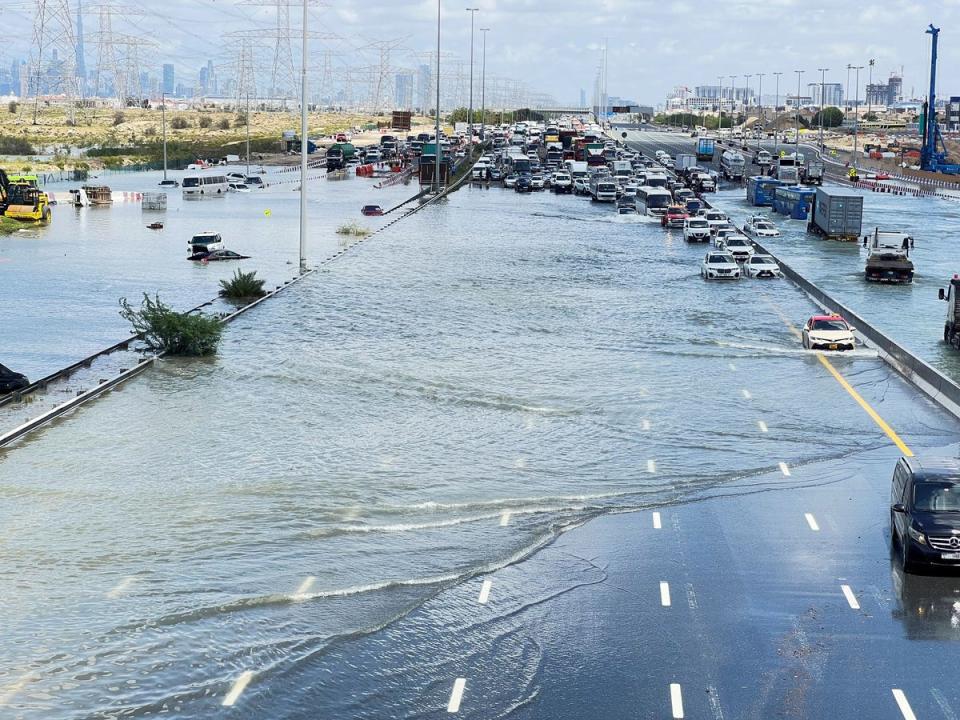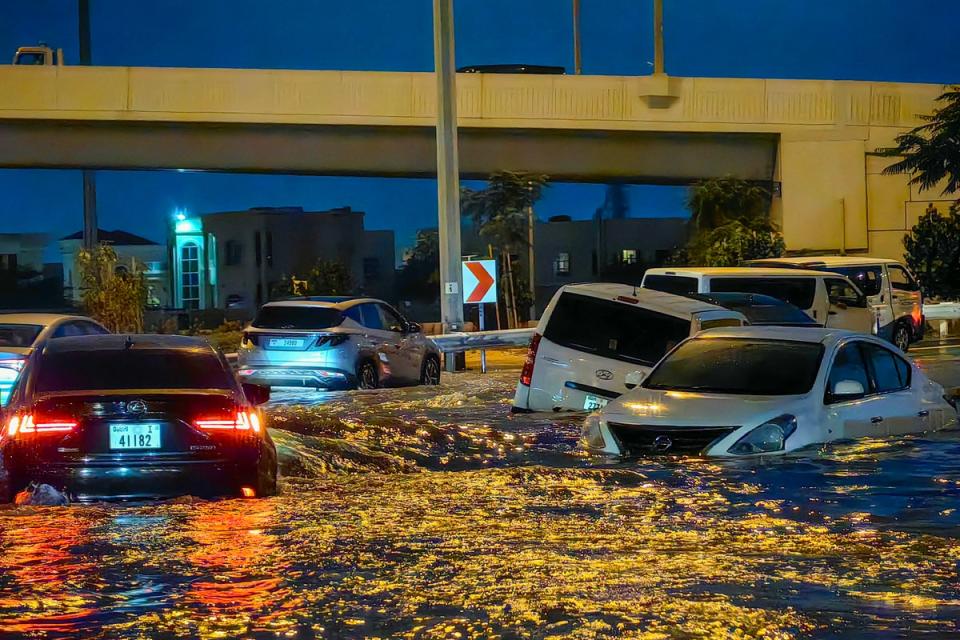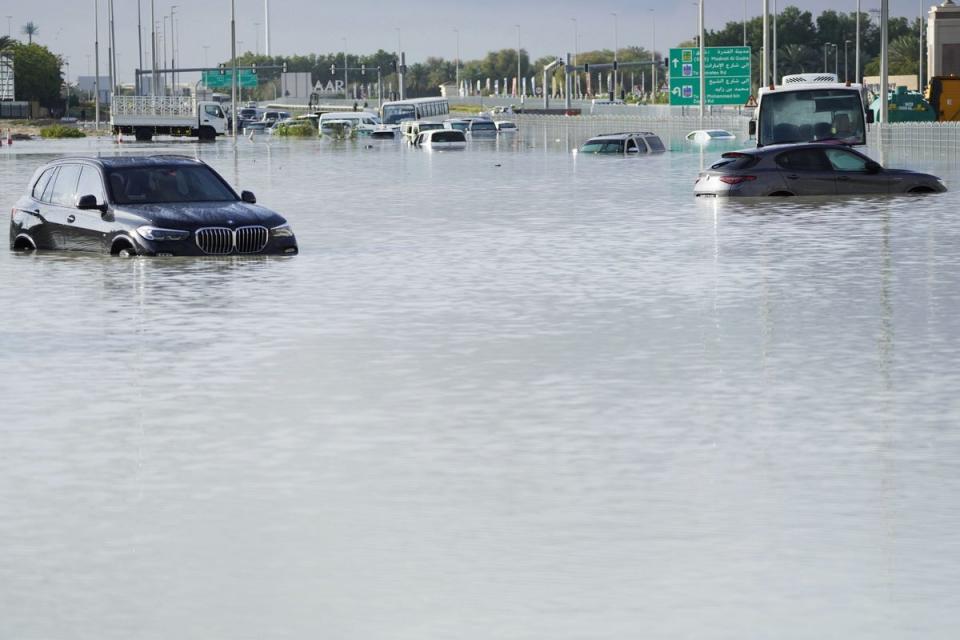Dubai airport disruption continues as scientists warn historic rainfall was 'supercharged' by climate change

Chaos at Dubai airport continued on Thursday as scientists warned the record-breaking rainfall that has brought the city-state to a standstill was likely to have been “supercharged” by climate change.
More than a year-and-a-half’s worth of rain fell on Dubai in a matter of hours on Tuesday, as major storms hit the United Arab Emirates (UAE).
The deluge flooded Dubai International Airport - the world's busiest for international travel - leaving inbound and outbound flights cancelled and delayed, and passengers warned “not to come to the airport”.
On Thursday morning, the airport said it had resumed receiving inbound flights at Terminal 1, used by foreign carriers, but that flights continued to be delayed and disrupted.
Emirates, the single largest carrier at the airport, said it would resume checking-in passengers in Dubai at 9am (6am in the UK) on Thursday.

Dubai airport struggled to get food to stranded passengers with nearby roads blocked by flood waters, and because of overcrowding limited access to those who had confirmed bookings.
Climate experts said rising temperatures caused by human-led climate change are leading to more extreme weather events around the world, such as the storm that struck the UAE and Oman this week.
"It's likely that the storm was kind of supercharged by climate change because there's just more moisture available in the air for any storm system to then precipitate out," said Colleen Colja, a climate scientist at Imperial College London.
Many British passengers have been stranded in Dubai.

One passenger said on X she and other passengers were left sitting on a stationary plane “for nearly eight hours” without food and water after her flight from Dubai to Gatwick was delayed on Wednesday.
Paul Lidwith, 40, a solicitor from Merseyside, was among hundreds of people stranded at Al Maktoum International Airport, an hour outside Dubai, after his flight to Dubai International Airport was diverted.
“This airport is for cargo planes and it deals with about maybe half a dozen flights a day,” he said on Wednesday.
“They couldn’t handle the flights that were diverted from Dubai International.
“We had to wait on the Tarmac for nearly five hours. It’s just been an absolute disaster.”

The storm, which hit neighbouring Oman on Sunday, pounded the UAE on Tuesday, flooding roads and causing hours-long gridlock as rainwater inundated homes. One person was reported dead in the UAE and 20 in Oman.
Flooding trapped residents in traffic, offices and homes as the UAE recorded its heaviest rains in the 75 years that records have been kept, authorities said.
Authorities have also told government employees and students to stay home while waterlogged roads are cleared.
Jeff Masters, a meteorologist for Yale Climate Connections, said the flooding in Dubai was caused by an unusually strong low pressure system that drove many rounds of heavy thunderstorms.
Scientists also say climate change is responsible for more intense and more frequent extreme storms, droughts, floods and wildfires around the world.

Researchers anticipate climate change will lead to heightened temperatures, increased humidity and a greater risk of flooding in parts of the Gulf region. The problem can be worsened in places like the UAE where there is a lack of drainage infrastructure to cope with heavy rains.
A UAE government agency that oversees cloud seeding - a process of manipulating clouds to increase rainfall - has denied that any such operations took place before the storm.
The UAE state news agency late on Wednesday carried a statement from President Sheikh Mohammed bin Zayed Al Nahyan saying he had ordered authorities to assess the damage and provide support to families impacted by the storm.
Dubai International Airport – which is the world’s second busiest airport – was deluged from Monday night into Tuesday as the UAE saw the most rain it has recorded in data going back to 1949.
More than 142mm (5.6 inches) of rain soaked Dubai over 24 hours. The average annual amount at the airport is 94.7mm (3.7 inches).


